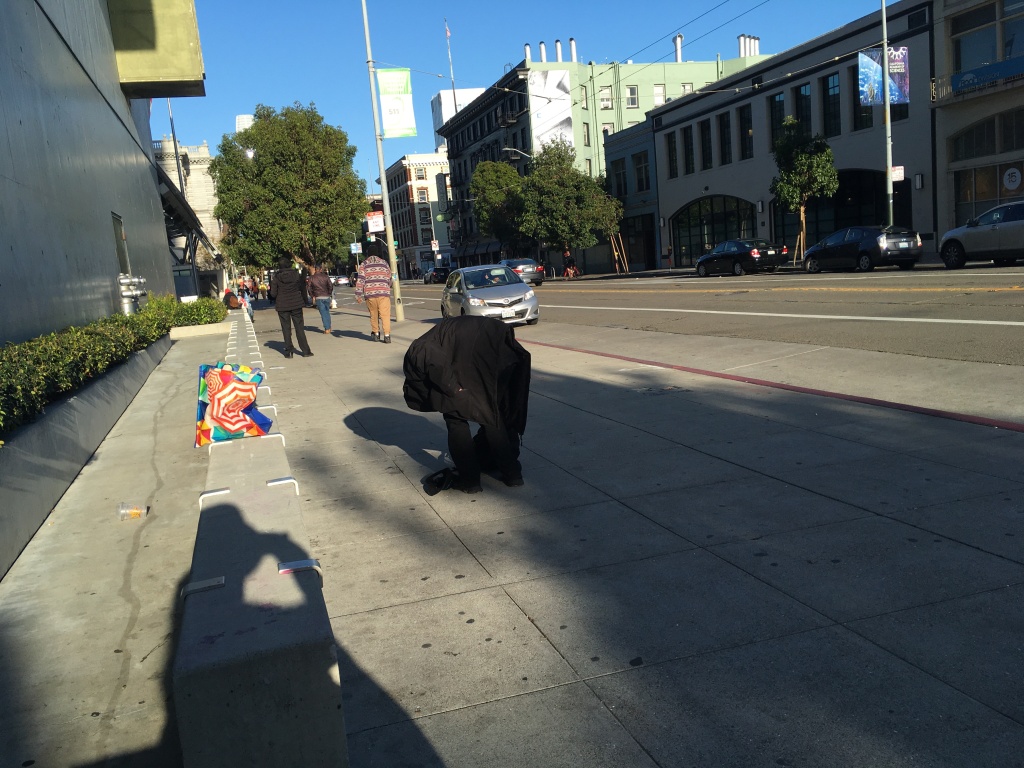When I was in my early twenties I could never make up my mind. Should I go to law school? Should I finish my Ph. D? Should I break up with my boyfriend? I used to make long lists of pros and cons. People said,
“Listen to your inner voice.”
I listened hard. I didn’t actually hear any voice out loud except late at night in bed. Sometimes it said, “You a**hole, why did you do those dumb things?”
I asked my graduate school adviser how he made decisions, or how he listened to his inner voice. He said, “When people tell me to listen to my inner voice, I say, which one?”
I think my adviser navigated life by means of outer voices, or, I guess, logic of some kind. He created algorithms to guide his own activities. He decided which problem was most important to the greatest number of people, then he decided what person or interest group was most able and likely to do anything about that problem, and then he addressed his arguments to that player. The world is not saved yet, though, I noticed.
Somewhat Useful Voices
After I started taking antidepressants, I began hearing voices once in a while. “Don’t worry.” “You know they are wrong.” They generally said useful things.
When I took too much of my antidepressant, though, it seems like an inner voice told me to persist with a ridiculous small claims lawsuit, which got everyone pissed off at me.
I had trouble making decisions until I was about 40, when I decided to have kids. I didn’t know, and couldn’t explain, why I wanted to have kids–still can’t–but it still seems to me to have been a good decision.
Sometimes when I’m writing or revising, an inner voice steers me. I ask it constantly whether I should chop this, move that, drop this train of thought for now, and it often replies. But as they say, don’t revise when you hate your work. Because it seems people think this inner voice might at times be evil, and tell me to make my writing worse, because it hates my writing and me.
How I Practiced Stopping My Ears to Some Voices and Hearing Others
When I was a Little League umpire, I often had to make a decision. “Undecided” is not an option. Ideally, you take a movie in your head of what happened on the play, rewind it and watch, and decide. I couldn’t always get the movie to play back. So I had to rely on my inner voice: I had to ask whoever was in my head at the moment whether the runner was out or safe. Fortunately, I always came up with something to say.
People who really like baseball may believe in magic. They believe that if they stare at the empty field long enough, something will happen; they even think their desires may influence events, influence reality. But a crowd looking at a field may also bring forth evil; a fight, a team sobbing in defeat, a crazed Little League parent who has to be dragged away by the police. A voice, at least on a baseball field, may be from a devil. It was my job as a Little League umpire to not listen to any inner voices but my own; to stop my ears to parents, managers, players, and, if any, devils.
D Hears Voices That Cause Trouble
D hears an inner voice. This voice may perhaps hate her and wish her to fail.
But–I wonder if this voice sounds the same to her as our voices sound to ourselves. She often loves her voice and believes it to be a source of creativity. And before it got so loud and weird, I believe it was a source of creativity–it gave us many new ideas and things to try as a family which I would never have thought of before.
Recently I have begun to think that her inner voice is a devil, or a speaking drug.
How Can You Tell a Source of Creativity from a Source of Craziness?
It’s hard to admit. All my life I have been giving my inner voice room to be itself, and other people’s inner voices the room to be themselves. But–the inner voice and the crazy voice are just two ends of the same stick, they seem to meet up in back. I’m not so different from my crazy friends.
Now I don’t generally hear a voice–but sometimes I feel compelled somehow to do something that I can’t explain or justify too well.
The other morning I was standing in line at the local discount grocery store to pay for a bag of rice. I was tired and cranky, not out of my mind surely, but not in my best possible mind. My daily routine had been upset recently, I forget by what. The cashier came out from behind the counter and scanned the handle of my shopping cart; there was a barcode glued on it. It bothered me. I had to ask: “Why did you do that?” “To track our carts,” she said.
Oh-kay. I guess they are the store’s carts. I kept quiet, but, “Do Not Track Me,” said a stubborn voice to itself. In the parking lot I found a sharpie and carefully drew several thick and thin lines into the bar code, to confuse any future scanners. I drove off leaving the altered cart in the parking lot. I drove off feeling a little surprised at this involuntary action I had taken, and apprehensive. I realized the store would know it was me that drew on the shopping cart handle with a sharpie. They would link the vanished cart number to my debit card. What I did was probably against the law, and could cause trouble for me, and no particular benefit. And if they asked me why I did it, I would have to say, “I don’t know. It was just something I had to do.”
A Voice Promises To Pick Up The Tab for a Soda
D was released from a psychiatric hospital and we were walking around in the City. We went into Whole Foods (a high-end grocery store) so we could to use the clean, spacious bathroom there, and so she could apply to work at an organic yogurt factory (I didn’t inquire closely as to how that would work). Reminded by a display of dollar sodas, she told me an anecdote about voices.
The last time she was in that Whole Foods ,she was thirsty and saw a display of sodas. She remembered she had no money. But a voice told her, “It’s all right, I’ve got it, it’s paid for.” So, gratefully, she opened the can and took a sip. Very quickly a security guard grabbed her, twisted her arm up behind her back, dragged her into some back room, threatened to call the cops, and told her never to come into the store again. Whoever had told her that, about the soda being paid for, was nowhere to be found. As is often the case with these voices that give you advice.
Our Voices Tell Us to Stand Up for a Principle
The other evening I was walking with D and she did something that may have changed our relationship forever. Then again it may have just changed it for a weekend.
It was dark, we were walking along the Bay Trail, in a semi-industrial area near the Oakport soccer field, and there were very few people around. All evening we had been discussing love. She had decided a guy she last talked to four or five weeks ago, who lives somewhere near 28th Street, is in love with her, because their minds met while one or the other of them were taking drugs recently, and she had further decided he is her boyfriend, although she hasn’t seen him for weeks and wasn’t sure she even liked him. She said she really really needed bus money to go see him, although she doesn’t know where he lives–she planned to just keep walking the geneeral area asking strangers where he lived.
She asked me to give her the eight bucks she had in her jacket when she last got committed to the psychiatric hospital. As I told her, and had been telling her for days, I had taken the money out of her jacket, and I wasn’t going to give her the money, because her family and I would provide for her needs until she gets admitted into the group home we are working on, and we don’t want her spending money on drugs.
I noticed during our walk that she had been walking close to me and sometimes bumping into me, but I figured it was my own clumsiness–I’m never sure what space to take up in a trail.
So in the dark she grabbed my shoulder bag and said, “You thief, you stole my money, it’s mine, give it to me, I need it.” Now I have my own issues, and really hate people taking away my purse. so I yanked on it, and yelled at her to let go, and wrestled with her and tried to shove her away, called her some kind of names, called 911, screamed and cried for her to come back from the freeway onramp I saw her walking onto. Eventually she gave me back my shoulder bag, saying she had removed $5 from it and was still waiting for the remaining $3, and consented to get back into my car and go to her cousin’s house where she belonged.
In a way, what she did makes sense. It’s all for love right? What is more important than love? Even if you are not sure about who you love or where he is staying. And principle! It is her money (she says it doesn’t matter how she got it, it’s hers). And no matter how much much gasoline and time and parking money I have spent visiting her and driving to various bureaucratic places, it is her money, and the law calls her an adult.
So, at least, by snatching my purse and going through it, she is standing up for herself, obeying her inner voice.
Another explanation I have heard (from my therapist) is that D is very ill and feels compelled to push anyone away who might help her. Her voices may be evil, self-destructive, generated by a part of her that hates herself and wants her to die on the street, a truly achievable possibility if she runs out of places to stay, which seems to be happening. Similarly, it has been suggested (by my therapist in fact) that there is some voice holding me myself back from succeeding at work and enjoying life and cleaning up my house. I wonder. Wondering, alas, needs to nothing but more wondering.
It’s a Matter of Degree, Not a Basic Difference
There is really no basic, basic difference between my crazy family members and me. I do what I feel like I have to do. I write letters to the head of the agency I work for, I call up my landlady and complain about the neighbors being evicted, I write screeds complaining about this or that hospital bill. I do this because I feel like I have to do it. I could say I’m doing it because I am fighting for justice against vast, nameless, formless, constellations of oppressors, but really I do it because I have to. The same way D calls up the police and reports everyone she knows for committing various crimes. You do it because you have to.


